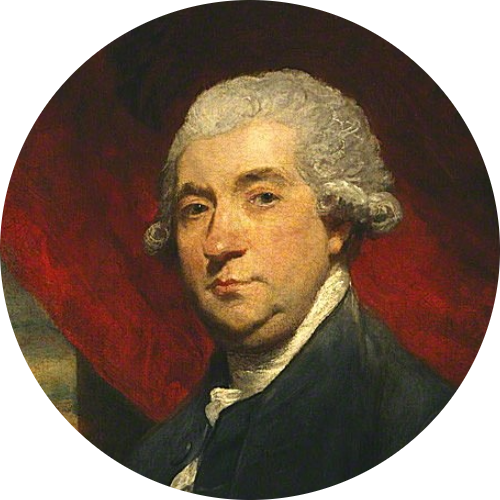Georgiana
13 January 2010
Hello all.
I was so pleased to find this site. I had sometimes tried to find a Boswell society online, with no result. I came across Boswell 'by accident' some years ago; I bought The Ominous Years and in Extremes in a local library sale, which has drawn me into a great deal of other reading matter. At the moment I am re-reading the journals concurrently with the 1857 edition of Boswell's letters to Temple published by Richard Bentley in London. I think the editor is Sir Philip Francis but I'm not sure. Whoever it is is pretty poisonous about Boswell, highly judgemental and with the usual attitude of contempt common at the time. It's interesting. Perhaps someone could confirm the name of the editor for me?

The editor was Sir Philip Francis
thf1977 Mon, 01/18/2010 - 20:19
Welcome to the forum and the site. I hope you may find it useful :-)
I don't have a copy of the original publication of the Boswell/Temple correspondence, but this is what David Buchanan writes of it in "The Treasure of Auchinleck":
Major Stone kept his letters until his death in about 1850. They then passed to his newphew, Augustus F. Boyse, a barrister of the Inner Temple, who sold them to a fellow barrister, Edmund G. Hornby. Hornby arranged for their publication by Richard Bentley; he had originally intended to do the editing himself, but the demands of his profession made this impossible, and the task was undertaken anonymously by Philip Francis. The book appeared just before Christmas, 1856, and was very well received, but Hornby's plans for a second edition never came to fruition.
Interestingly, Pottle in "Pride and Negligence" wrote of the 1856/7 publication that
The book constituted a remarkably complete and faithful biographia epistolaris and furnished, for any one willing to approach it with some degree of sympathy and tolerance, a characterization of Boswell strongly at variance with Macaulay's. But though Francis had expurgated the text, it still presented ample evidence of Boswell's vanity, incontinence, and intemperance. To those under Macaulay's spell it merely confirmed Macaulay's verdict of fatuity.
Could you possibly give some examples of Francis' poisonous and judgemental remarks?
Best wishes,
Thomas
Letters to Temple
Georgiana Thu, 03/04/2010 - 17:32
In reply to The editor was Sir Philip Francis by thf1977
Hello Thomas and thanks, rather belatedly, for your reply.
I think one reason the editor seems so unsympathetic at times is the cumulative effect of his choice of words to describe Boswell. For example 'absurd', 'ludicrous' 'ridiculous' ; 'vagaries and follies' and 'most absurd' and 'eminently ridiculous' and 'superbly ridiculous' crop up too.
The 'editorial tone' as it were, seems sometimes rather arch, veering towards sarcastic at times, as for instance
'The modesty with which he asks the Earl of Chatham to write to him "now and then" ...is truly astounding.
Regarding Boswell's 'Esscence of the Douglas Cause' he writes
'It possessed that character which naturally would attract his officious attention; for it was the subject of everybody's conversation; and it gratified Boswell's feeling of self-importance to be (or to be supposed to be) mixed up in a matter which was producing an excitement almost...unparalleled in the history of British litigation'.
And 'The following chapter contains a most absurd confession by Boswell as to his courtship of Miss Blair...'
Reading, I sometimes feel I am getting 'mixed messages', when the editor appears to be sympathetic but at the same time rather scathing, perhaps illustrated by this extract
'However it is by no means improbable...that, if not constitutionally disposed to hypochondria, yet after drinking and excessive excitement Boswell was subject to great depression, which, as was natural to him, he paraded as an important constitutional phenomenon, and elevated to the dignity of hypochondria.'
(I suppose we must take account of differences between the writing style of 1849 and what we have now).
I do think that the editor takes a judgemental stand when he writes
'It is in reading such letters that one feels almost disposed to exclaim - "How much, methinks, I could despise this man, But that I am bound in charity against it".' (quoting from Henry V111).
However, he writes this regarding Boswell's acquaintance with Margaret Caroline Rudd and it brings us to the question of how far his criticisms of Boswell are justified. Boswell most assuredly had some pretty reckless moments. (I wouldn't argue with his opinion of Boswell's verse either).
The editor does balance his criticisms with positive remarks and observations and certainly show compassion, often referring to 'poor Boswell' . In the book's final paragraph he writes of Boswell's 'defects' and 'imperfect nature' but also his 'genuine and excellent qualities'.